Shows

Into the Impossible With Brian KeatingSam Arbesman: "The World is Made of Code"Please join my mailing list here 👉 https://briankeating.com/yt to win a meteorite 💥
Code. It's the closest thing humans have ever invented to magic. Write symbols on a screen, and reality emerges. Money moves, doors unlock, planes land, diseases get diagnosed, and most of us have no idea how it actually works. Today's conversation is about why code feels magical and why that feeling is both powerful and also dangerous. In a moment, you'll hear why the real risk of code is artificial intelligence. It's scale. Tiny ideas multiplied across billions of lives.
My guest...
2026-02-021h 15
Asimov PressWhy Do Research Institutes Often Look the Same?Despite attempts at variation, many new research organizations are canalized into just a handful of forms. By Sam Arbesman.Read all our work, entirely for free, by visiting press.asimov.com.
2026-01-0811 min
RiskgamingCan software platforms reverse enshittification?Software kind of sucks these days, doesn’t it? Cory Doctorow invented the word “enshittification” to describe a pattern he repeatedly observed across software platforms. They start generous and flexible, but over time, they increase their value capture to maximize profits at the expense of their users. Software ends up feeling over-optimized and hostile, constantly fighting our desires. But software ultimately is for us, and there must be a better way.Well, there is, at least in theory. A coalition of software and tech luminaries, joined by hundreds of supporters, recently launched the Resonant Computing Manifesto. They want software that i...
2025-12-1738 min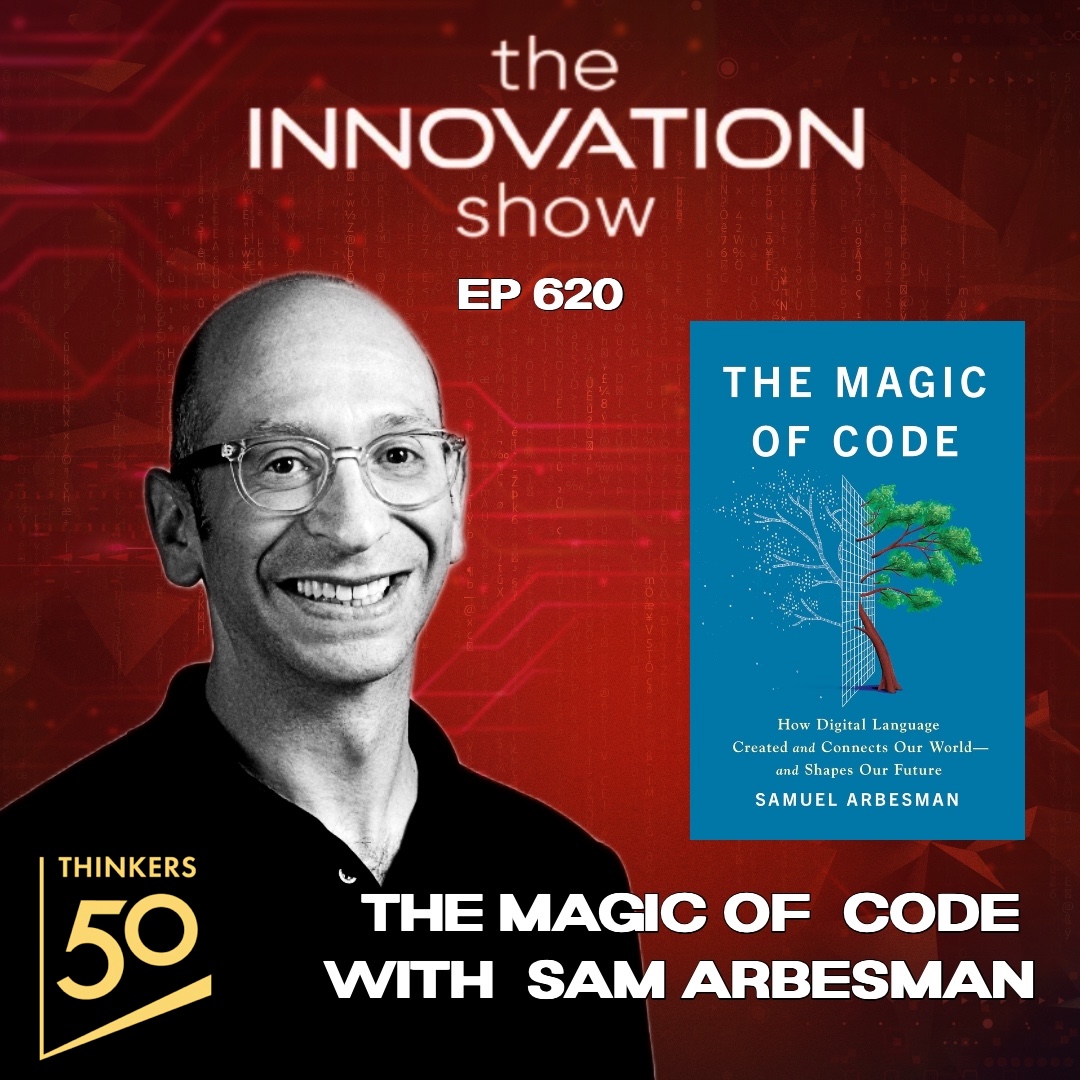
The Innovation ShowThe Magic of Code with Sam Arbesman | The Innovation Show (Thinkers50 Award-Winning Podcast)In this thought-provoking episode, Aidan McCullen — Thinkers50 Innovation Award Winner, author of Undisruptable, and host of The Innovation Show — welcomes Samuel Arbesman, scientist, author, and polymath, for the grand finale of their trilogy. Together, they explore The Magic of Code: How Digital Language Created and Connects Our World, diving deep into how code shapes our understanding of reality — from biology and evolution to artificial intelligence and the simulation hypothesis. Discover how code is the new DNA, the universal language linking art, philosophy, and technology, and why rekindling curiosity, humility, and wonder is essential in our age of...
2025-11-0559 min
Clearer Thinking with Spencer GreenbergDo facts have an expiration date? (with Samuel Arbesman) Read the full transcript here. What does it mean to treat facts as drafts rather than monuments? If truth is something we approach, how do we act while it’s still provisional? When definitions shift, what really changes? How do better instruments quietly rewrite the world we think we know? Are we mostly refining truths or replacing them? When do scientific metaphors clarify and when do they mislead? What public stories make self-correction legible and trusted? What features make science self-correct rather than self-congratulatory? How should we reward replication, repair, and tool-building? Do we need more generalists...
2025-10-091h 15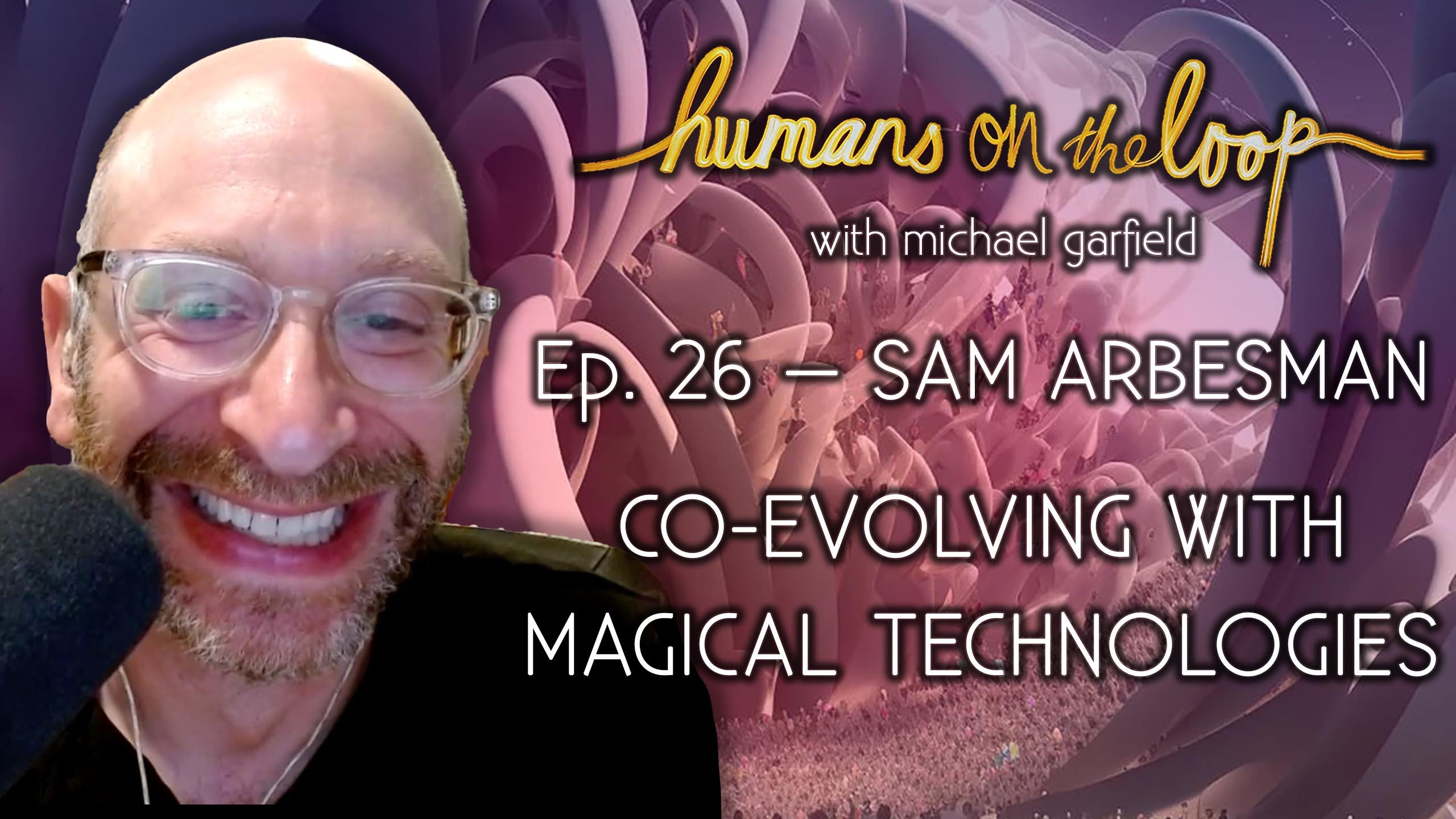
Humans On The LoopCo-Evolving with Magical Technologies feat. Sam ArbesmanMembership | Donations | Spotify | YouTube | Apple Podcasts✨ About This EpisodeThis week I talk to Sam Arbesman, scientist-in-residence at Lux Capital, Research Fellow at the Long Now Foundation, and host of The Orthogonal Bet, weaving together and plucking at the ideas in his delightful new book, The Magic of Code: How Digital Language Created and Connected Our World…and Shapes Our Future. Sam is a brilliant scholar, a maverick mind, and a good friend—so even though we don’t see perfectly eye-to-eye about just where the analogy of code as magic works and where it falls ap...
2025-10-021h 24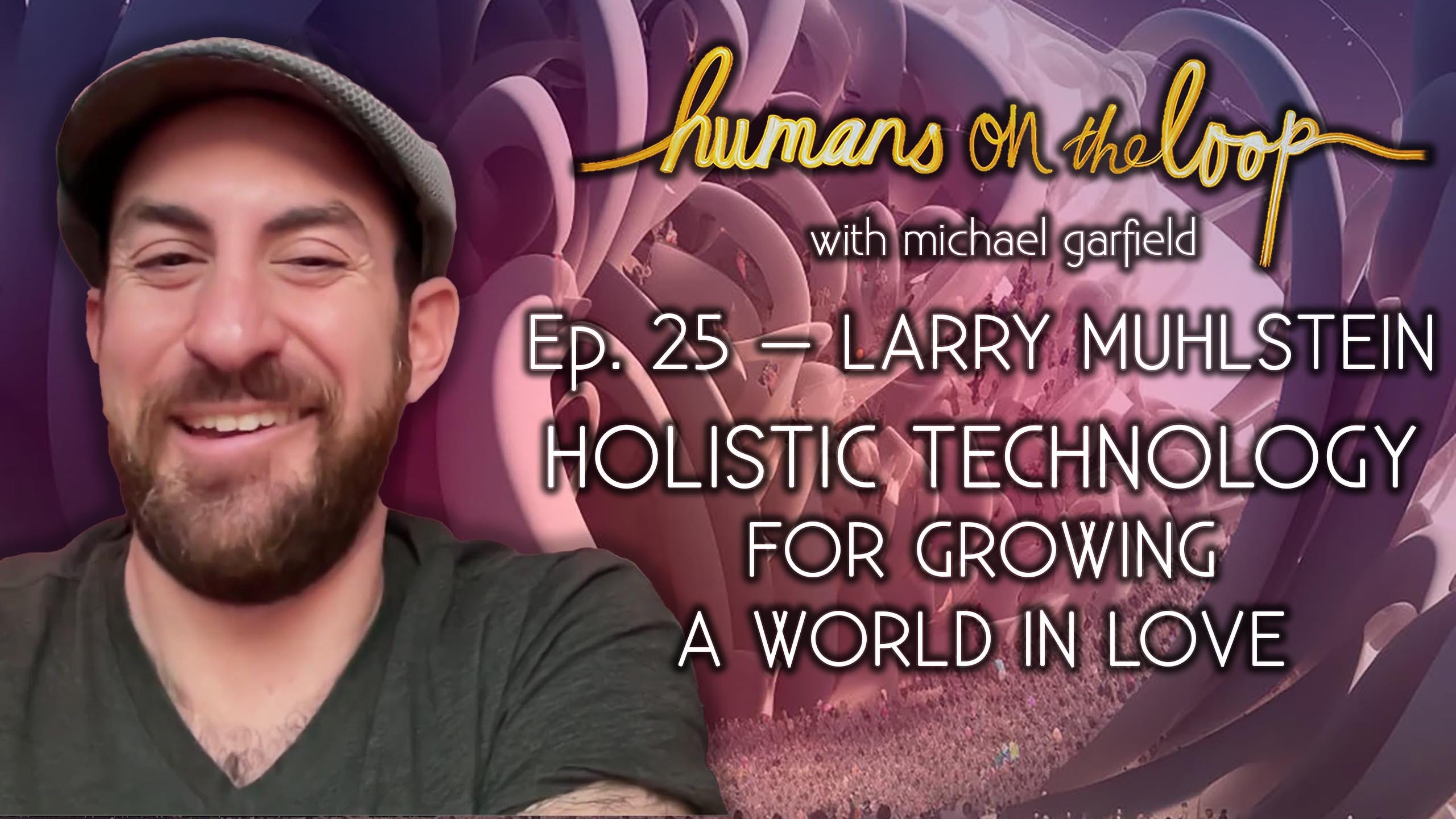
Humans On The LoopHolistic Technology for Growing a World in Love with Larry MuhlsteinMembership | Donations | Spotify | YouTube | Apple PodcastsThis week we hear from Larry Muhlstein, who worked on Responsible AI at Google and DeepMind before leaving to found the Holistic Technology Project. In Larry’s words:“Care is crafted from understanding, respect, and will. Once care is deep enough and in a generative reciprocal relationship, it gives rise to self-expanding love. My work focuses on creating such systems of care by constructing a holistic sociotechnical tree with roots of philosophical orientation, a trunk of theoretical structure, and technological leaves and fruit that offer nourishment and supp...
2025-09-222h 14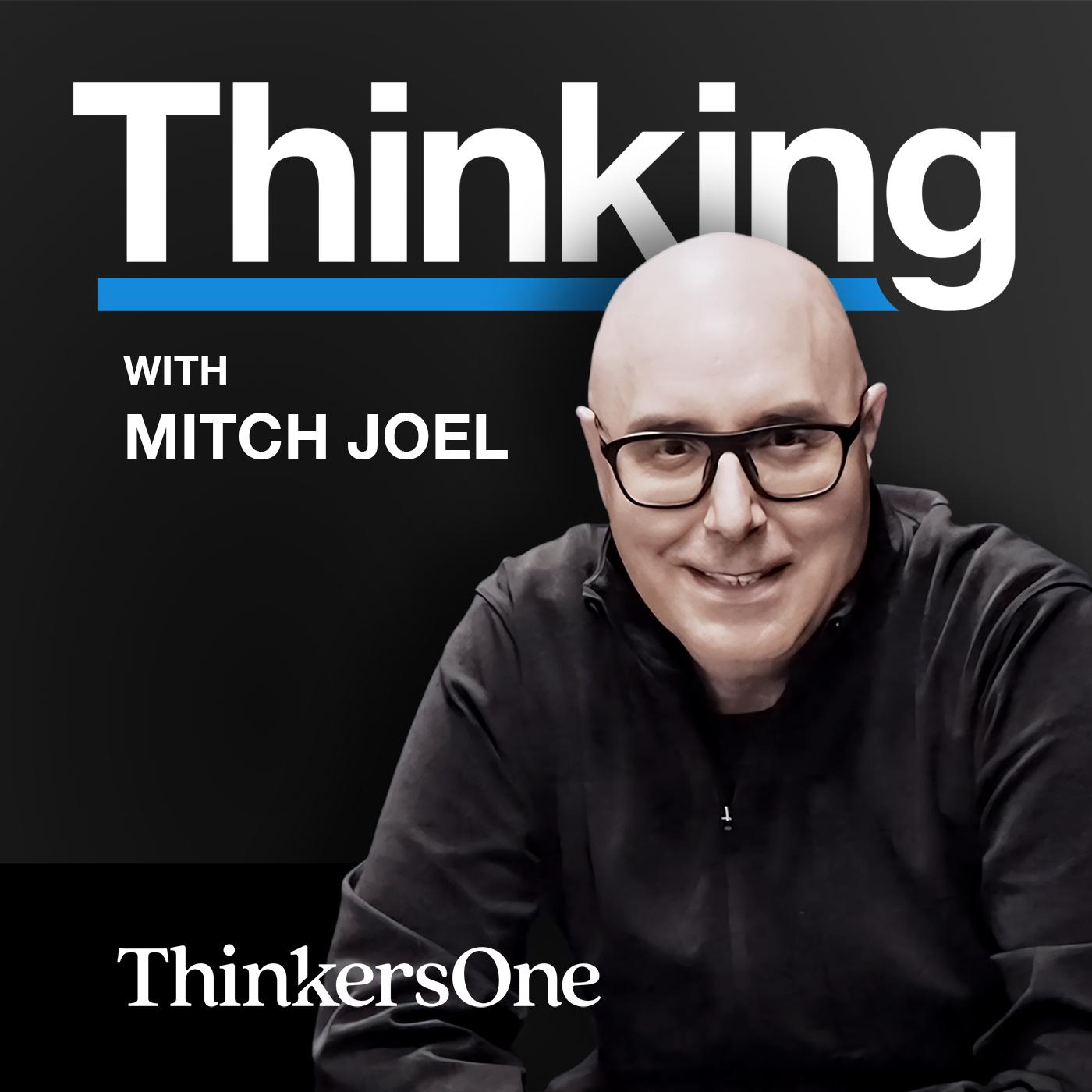
Thinking With Mitch JoelFrom Magic To Machines... The Wonder (And Worry) Of Code With Sam ArbesmanWelcome to episode #1002 of Thinking With Mitch Joel (formerly Six Pixels of Separation). What if code isn't just software, but the culture script of our age shaping what we notice, how we decide and who holds power? That's the provocation at the heart of Sam Arbesman's new book, The Magic Of Code - How Digital Language Created And Connects Our World - And Shapes Our Future, which he uses to reveal how programming moves from the screen into the fabric of everyday life. Sam is Scientist in Residence at Lux Capital and a visiting scholar at Harvard...
2025-09-2156 min
The Existential Hope PodcastSam Arbesman on Vibe Coding, AI, and the Magic of CodeIs code just a technical skill for engineers, or is it a deeply humanistic art form capable of expanding our minds? In this episode, host Beatrice Erkers is joined by scientist, author, and Coder-in-Residence at Lux Capital, Sam Arbsman, to explore the profound ideas in his new book, The Magic of Code.Sam reframes our relationship with computing, arguing that code is one of history's most powerful "tools for thought," standing alongside the alphabet and paper in its ability to augment human intellect. He delves into the fascinating history of this idea, from Don Swanson's concept...
2025-09-1555 min
Work For HumansThe Magic of Code: Wonder, the Experience, and Future of Programming | Sam ArbesmanSam Arbesman writes deep, beautiful books about the boundary between technology, knowledge, and wonder. His most recent book, The Magic of Code, is another profound exploration—this time into the wonders revealed by code. Sam describes code as “a universal force—swirling through disciplines, absorbing ideas, and connecting worlds.” In this episode, Dart and Sam talk about the experience of coding: what makes it great, when it feels arduous or magical, and how AI could change the experience.Sam Arbesman is a complexity scientist trained in computational biology and applied mathematics. He is the author of The Magic of...
2025-08-121h 10
Infinite LoopsSam Arbesman — Science, Complexity and Humanistic Computation (EP.277)Sam Arbesman, complexity scientist, author of "The Magic of Code," and scientist in residence at Lux Capital, joins me for a wide-ranging exploration of how we navigate an increasingly complex world that often exceeds human comprehension. We dive into the oral traditions that preserve crucial scientific knowledge, why cognitive diversity trumps demographic diversity, the forgotten innovations hiding in technological history, and Sam's vision for "Maxis 2.0". This conversation had everything—from science fiction's cultural impact to the philosophy of intellectual humility. Sam and I discovered we're remarkably simpatico on how to think about complex systems, the im...
2025-07-311h 45
RiskgamingThe future of science in an age of spending cutsScience feels under attack. The Trump administration has proposed budget cuts of up to one-third of all basic research funding, breaking a generations-long, bipartisan consensus that what is good for science is good for America. Even if not fully enacted by Congress, even the hint of cuts has already had an extraordinary effect on the perceptions of higher education and science leaders on America’s stability. Lux recently hosted a dinner with a group of these luminaries, and the general conclusion is that science institutions will need to radically change in the years ahead to adapt.Host Da...
2025-07-3051 min
Smart FriendsThe Magic of Code, History of Computing, and the Future of AI Interfaces [Sam Arbesman #2]Topics:
(00:00:00) - Intro
(00:03:14) - The magic of code
(00:05:30) - The wonder of early computing
(00:11:13) - The evolution of computing: From analog to digital
(00:18:45) - The personal computer revolution
(00:32:36) - The future of computing: Beyond silicon
(00:36:59) - The importance of computing history
(00:40:53) - AI and human uniqueness
(00:50:46) - The future of AI and computing interfaces
(01:02:13) - The intersection of playfulness and utility in computing
(01:11:17) - Conclusion and final thoughts
Links:
Books...
2025-07-221h 15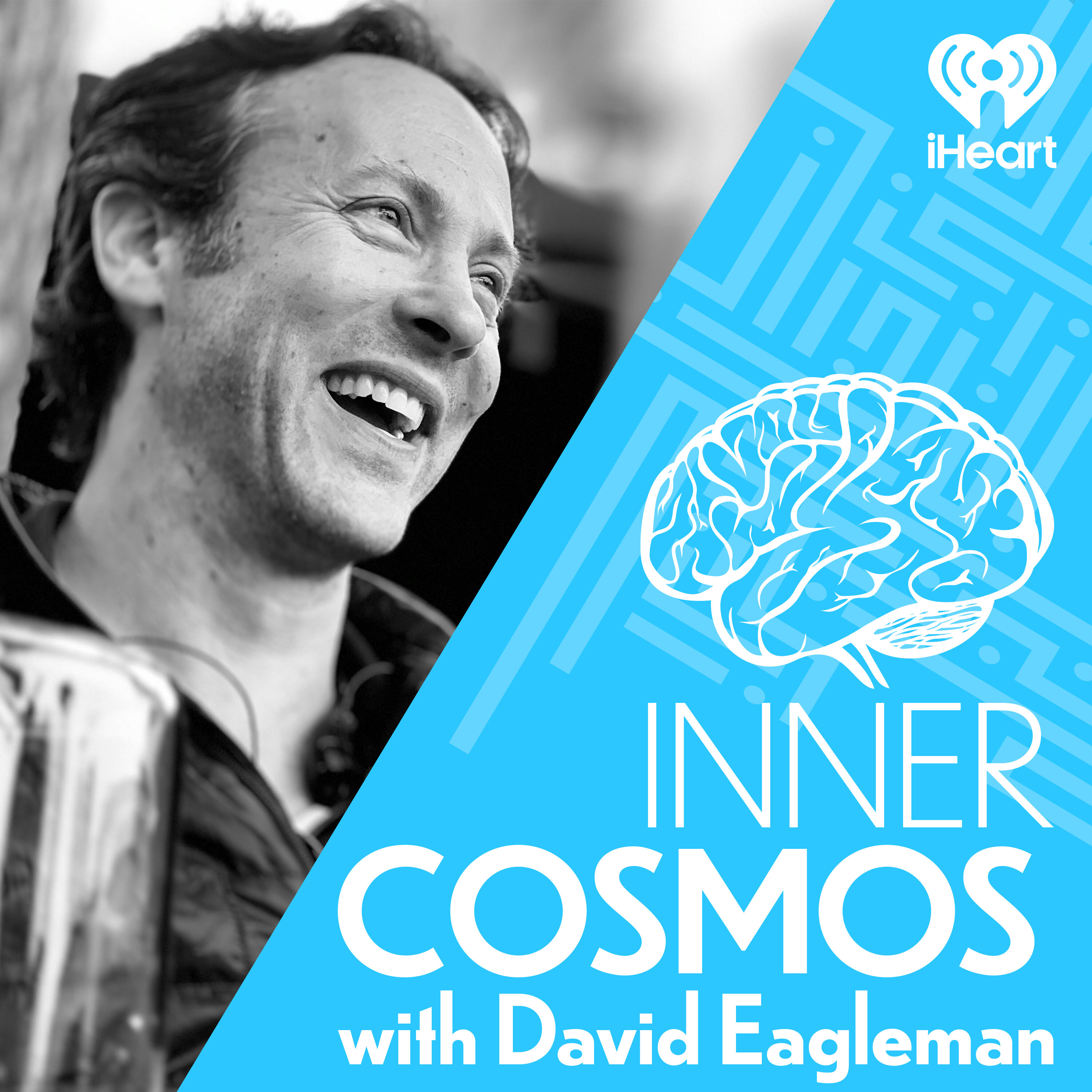
Inner Cosmos with David EaglemanEp112 "How is computer code like magic?" (with Sam Arbesman)What is code, and can it be thought of like a magic spell? Are we building a world so complex that we will lose the ability to understand its operations -- and has that already happened? What does any of this have to do with SimCity, or knowledge that already exists but no one has put together, or how coding will evolve in the near future? Join Eagleman with scientist Sam Arbesman, who has just written a book asking the question: what is code, really?
2025-07-1442 min
The Jim Rutt ShowEP 304 Samuel Arbesman on The Magic of CodeJim talks with Samuel Arbesman about the ideas in his book The Magic of Code: How Digital Language Created and Connects Our World—and Shapes Our Future. They discuss Sam's motivation for writing the book, the wondering vs. utilitarian stances toward computing, early personal computing experiences, scale in programming, AI as a "hinge of history" moment, the democratization of code through AI tools, the dual nature of code as text & action, analogies between code & magic/mysticism, HyperCard as an early programming tool, the evolution of web development & protocols, layers of abstraction in computing, code golf, imperative vs. functional languages, recursion in p...
2025-06-181h 21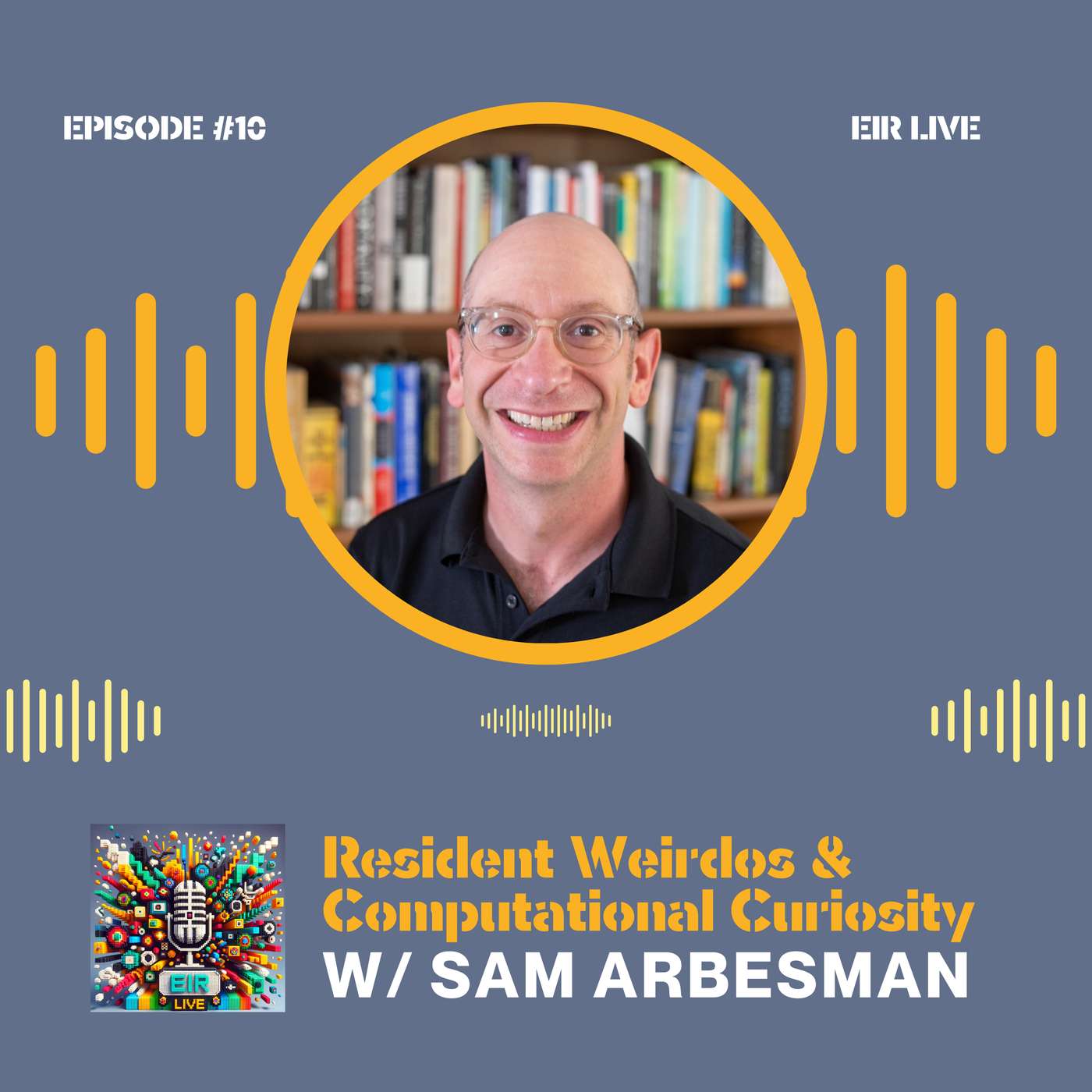
EIR LiveEpisode 10 - Resident Weirdos & Computational Curiosity with Sam ArbesmanMeet Sam Arbesman, Lux Capital's pioneering Scientist in Residence who has spent over a decade redefining what it means to be "in residence" at a venture capital firm. With a PhD in computational biology and a background spanning complex systems and network science, Sam represents a new breed of venture capitalist—one who follows curiosity rather than convention. In this fascinating conversation, Sam shares his journey from "Little Sam" in Buffalo tinkering with Commodore computers to becoming the connective tissue between cutting-edge science and frontier technology investments. Learn how his grandfather's science fiction collection shaped his worldview, why being a...
2025-06-101h 15
The Orthogonal BetSamuel Arbesman on The Magic of CodeIt’s not every day that we get to fete the launch of a new book by one of our colleagues at Lux Capital, so today is a very special day. Lux’s scientist-in-residence, Samuel Arbesman, just published his new book, “The Magic of Code: How Digital Language Created and Connects Our World―and Shapes Our Future.” It’s a deep dive into the wonderful conjuring that comes from coding computers, and Sam explores programming languages, spreadsheets, and how code bends reality all in a taut narrative. At its center, Sam is looking to bring the human back into the machine, and cre...
2025-06-1041 min
RiskgamingSamuel Arbesman on his new book, The Magic of CodeIt’s not every day that we get to fete the launch of a new book by one of our colleagues at Lux Capital, so today is a very special day. Lux’s scientist-in-residence, Sam Arbesman, just published his new book, “The Magic of Code: How Digital Language Created and Connects Our World―and Shapes Our Future.” It’s a deep dive into the wonderful conjuring that comes from coding computers, and Sam explores programming languages, spreadsheets, and how code bends reality all in a taut narrative. At its center, Sam is looking to bring the human back into the machine...
2025-06-1041 min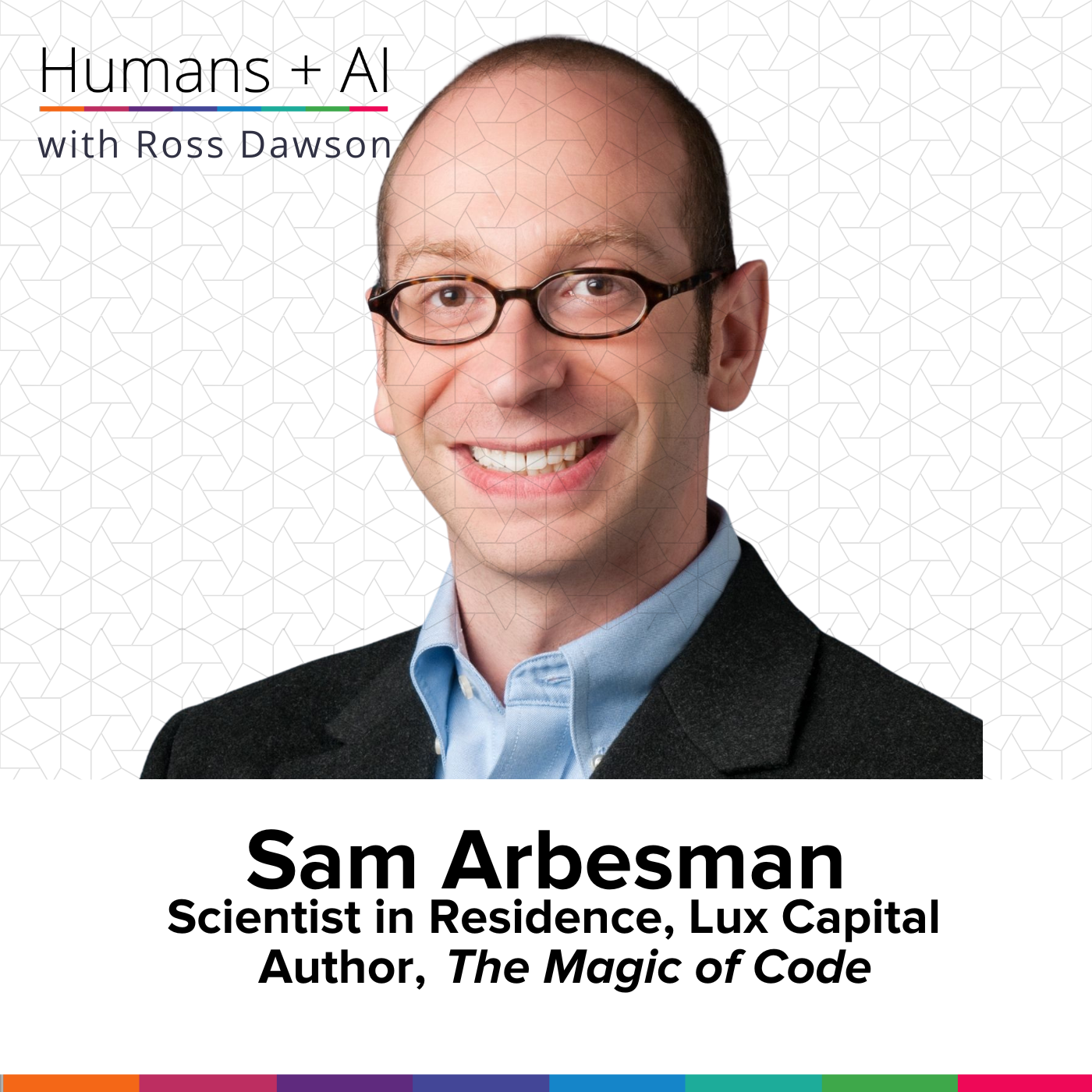
Humans + AISam Arbesman on the magic of code, tools for thought, interdisciplinary ideas, and latent spaces
Code, ultimately, is this weird material that’s somewhere between the physical and the informational… it connects to all these different domains—science, the humanities, social sciences—really every aspect of our lives.
– Sam Arbesman
About Sam Arbesman
Sam Arbesman is Scientist in Residence at leading venture capital firm Lux Capital. He works at the boundaries of areas such as open science, tools for thought, managing complexity, network science, artificial intelligence, and infusing computation into everything. His writing has appeared in The New York Times, The Wall Street Journal, and The Atlantic. He is the awa...
2025-05-2835 min
On a LimbRekindling The Magic of Code with Samuel Arbesman, PhDSend us a textIn this episode, Irene is joined by Samuel Arbesman, PhD, to discuss his new book, 'The Magic of Code'.With a Ph.D. in computational biology from Cornell University, Sam currently serves as Scientist-in-Residence at Lux Capital. He’s well known for his writings, published in Wired, The New Yorker, The Atlantic, among others, and he’s authored several popular books.Sam and Irene discuss the importance of rekindling wonder in our relationship with technology, the historical context of computing, and the responsibility that comes with the power of soft...
2025-05-2133 min
The Orthogonal BetPeter Bebergal on the Roots of Dungeons & DragonsIn this episode, Samuel Arbesman speaks with Peter Bebergal. Peter is a writer and the author of numerous books, and the editor, most recently, of Appendix N: Weird Tales From the Roots of Dungeons & Dragons. Dungeons and Dragons was created by Gary Gygax and draws from numerous sources, which Gygax listed in Appendix N of his Dungeon Master’s Guide. Peter took this list as the basis for creating a fascinating collection of stories that inspired D&D.Peter and Sam talked about the origins of this book and how he chose what to in...
2025-05-0738 min
The Orthogonal BetDave Jilk on AI, Poetry, and the Future of AGIIn this episode, host Samuel Arbesman speaks with Dave Jilk. Dave is a tech entrepreneur and writer. He’s done a ton: started multiple companies, including in AI, published works of poetry, and written scientific papers. And he’s now written a new book that is an epic poem about the origins of Artificial General Intelligence, told from the perspective of the first such entity. It’s titled Epoch: A Poetic Psy-Phi Saga and is a deeply thoughtful humanistic take on artificial intelligence, chock-full of literary allusions.Sam wanted to speak with Dave to learn more about the origins of...
2025-02-1540 min
The Orthogonal BetHenry Oliver on Embracing Second ActsIn this episode, host Samuel Arbesman speaks with the writer Henry Oliver. Henry is the author of the fantastic new book Second Act. This book is about the idea of late bloomers and professional success later in life, and more broadly how to think about one’s career, and Sam recently reviewed it for The Wall Street Journal. Sam really enjoyed this book and wanted to have a chance to discuss it with Henry.Henry and Sam had a chance to talk about a lot of topics, beginning with how to actually define late bloomers and what makes a su...
2025-02-1539 min
The Orthogonal BetDominic Falcao on How Deep Science Ventures Redefines Deep Tech InnovationIn this episode, host Samuel Arbesman speaks with Dominic Falcao, a founding director of Deep Science Ventures (DSV), which he created in 2016 after leading Imperial College London’s science startup program. Deep Science Ventures takes a principled and problem-based approach to founding new deep tech startups. They have even created a PhD program for scientists specifically geared towards helping them create new companies.Sam wanted to speak with Dom to discuss the origins of Deep Science Ventures, as well as how to think about scientific and technological progress more broadly, and even how to conceive new research or...
2025-02-1542 min
The Orthogonal BetLev Grossman on The Role of Complexity in World-BuildingIn this episode, host Samuel Arbesman speaks with novelist Lev Grossman. A longtime fan of Lev’s novels, the host delves into his works, including The Magicians trilogy—a splendid set of books about a university for magic, fantastical worlds, and much more. These books are amazing. Lev’s newest book is the novel The Bright Sword, a retelling of the legends of King Arthur, particularly focusing on what happens after Arthur dies.The Sam devoured The Bright Sword and found it fascinating. It’s a book that weaves together ideas about gods and magic, the layering of myths across hist...
2025-02-1538 min
The Orthogonal BetAlex Miller on The Wonders of Graph Paper and Algorithmic ArtIn this episode, host Samuel Arbesman speaks with Alex Miller, a software developer and artist known for his work on a project called Spacefiller. This project exemplifies generative art, where computer code is used to create art and imagery. Spacefiller itself is a pixelated form of artwork that feels organic and biological, but is entirely crafted through algorithms.Sam invited Alex to discuss not only Spacefiller, but also the broader world of generative art, and the concept of coding as a fun and playful activity. Together, they explore topics such as the distinction between computation as art and compu...
2025-02-1544 min
The Orthogonal BetJ. Doyne Farmer on Complexity EconomicsIn this episode, host Samuel Arbesman speaks with J. Doyne Farmer, a physicist, complexity scientist, and economist. Doyne is currently the Director of the Complexity Economics program at the Institute for New Economic Thinking at the Oxford Martin School and the Baillie Gifford Professor of Complex Systems Science at the Smith School of Enterprise and the Environment at the University of Oxford.Doyne is also the author of the fascinating new book “Making Sense of Chaos: A Better Economics for a Better World.”Sam wanted to explore Doyne’s intriguing history in complexity science, his new book, and...
2025-02-1540 min
The Orthogonal BetTarin Ziyaee on Artificial Life and Robotic EvolutionIn this episode, host Samuel Arbesman speaks with Tarin Ziyaee, a technologist and founder, about the world of artificial life. The field of artificial life explores ways to describe and encapsulate aspects of life within software and computer code. Tarin has extensive experience in machine learning and AI, having worked at Meta and Apple, and is currently building a company in the field of Artificial Life. This new company—which, full disclosure, Sam is also advising—aims to embody aspects of life within software to accelerate evolution and develop robust methods for controlling robotic behavior in the real world.Sam...
2025-02-1542 min
The Orthogonal BetEli Altman on The Art of NamingIn this episode, host Samuel Arbesman Sam speaks with Eli Altman, the managing director of A Hundred Monkeys, a company that specializes in the art of naming. A Hundred Monkeys works with clients to come up with the perfect name for a company, product, or anything else that requires a name.The art of naming is a fascinating subject. Throughout human history, the power of names has been a recurring theme in stories and religion. A well-crafted name has the ability to evoke emotions and associations in a profoundly impactful way.Sam invited Eli to the show...
2025-02-1530 min
The Orthogonal BetAlex Komoroske on How to Navigate Complexity Within a Large OrganizationsIn this episode, host Samuel Arbesman Sam speaks with Alex Komoroske, a master of systems thinking. Alex is the CEO and co-founder of a startup building at the intersection of AI, privacy, and open-endedness. Previously, he served as the Head of Corporate Strategy at Stripe, and before that, spent many years at Google, where he worked on the Chrome web platform, ambient computing strategy, Google Maps, Google Earth, and more.The throughline for Alex is his focus on complex systems, which are everywhere: from the Internet to biology, from the organizations we build to society as a whole. T...
2025-02-1542 min
The Orthogonal BetAdrian Tchaikovsky on Bio Trajectories and the Importance of Long-Term ThinkingIn this episode, host Samuel Arbesman speaks with Adrian Tchaikovsky, the celebrated novelist of numerous science fiction and fantasy books, including his Children of Time series, Final Architects series, and The Doors of Eden. Among many other topics, Adrian’s novels often explore evolutionary history, combining “what-if” questions with an expansive view of the possible directions biology can take, with implications for both Earth and alien life. This is particularly evident in The Doors of Eden, which examines alternate potential paths for evolution and intelligence on Earth.Sam was interested in speaking with Adrian to learn how he thinks...
2025-02-1542 min
The Orthogonal BetMichael Levin on Understanding Embodied IntelligenceIn this episode, Samuel Arbesman speaks with Michael Levin, a biologist and the Vannevar Bush Professor at Tufts University. Michael’s work encompasses how information is processed in biology, the development of organismal structures, the field of Artificial Life, and much more.Sam wanted to talk to Michael because of his pioneering research in these areas. Biology, as Michael’s work reveals, is far more complex than the mechanistic explanations often taught in school. For instance, the process of morphogenesis—how organisms develop their specific forms—challenges our understanding of computation in biology, and Michael is leading the way in t...
2025-02-1543 min
The Orthogonal BetLaurel Schwulst on The Quest to Build the Fruitful WebIn this episode, Samuel Arbesman speaks with Laurel Schwulst. Laurel operates within many roles: designer, artist, educator, and technologist. She explores—among other things—the intersection of the human, the computational, and the wonderful. Sam wanted to talk to Laurel because of this intersection and particularly because of how Laurel thinks about the internet. As part of this, she helps to run HTML Day and its celebrations, promotes what is referred to as “HTML Energy,” and is even thinking deeply about what it would mean to create a PBS of the Internet. In other words, the Internet and the web are delightf...
2025-02-1523 min
The Orthogonal BetEliot Peper on The Art of Cultivating CuriosityIn this episode, Samuel Arbesman speaks with Eliot Peper. Eliot is a science fiction novelist and all-around delightful thinker. Eliot’s books are thrilling tales of the near future, exploring many delightful areas of the world and the frontiers of science and technology. In Eliot’s most recent novel, Foundry, he takes the reader on a journey through the world of semiconductors, from their geopolitical implications to their profoundly weird manufacturing processes.Sam wanted to talk to Eliot to explore this profound strangeness of the manufacturing of computer chips, but also use this as a jumping-off point for somethin...
2025-02-1535 min
The Orthogonal BetAmy Kuceyeski on Using Computational Biology to Understand How the Brain WorksIn this episode, host Samuel Arbesman speaks with Amy Kuceyeski, a mathematician and biologist who is a professor at Cornell University in computational biology, statistics, and data science, as well as in radiology at Weill Cornell Medical College. Amy studies the workings of the human brain, the nature of neurological diseases, and the use of machine learning and neuroimaging to better understand these topics.Sam wanted to talk to Amy because she has been using sophisticated AI techniques for years to understand the brain. She is full of innovative ideas and experiments about how to explore how we p...
2025-02-1535 min
The Orthogonal BetWhat the Microsoft Outage Reveals about Complex SystemsIn this episode, host Samuel Arbesman delves into the recent CrowdStrike/Microsoft outage, providing insights on how to understand this event through the lens of complexity science. The episode was inspired by Sam's very timely post in the Atlantic: "What the Microsoft Outage Reveals"Join us as Sam answers Producer Christopher Gates’ questions, exploring the intricate web of factors that led to this global system failure and offering a unique perspective on navigating and preventing such crises in the future.Produced by Christopher GatesMusic bySuno
2025-02-1510 min
The Orthogonal BetRobin Sloan on His Epic Sci-Fi Novel Moonbound, Worldbuilding, and AIIn this episodeSam Arbesman speaks with Robin Sloan, novelist and writer and all-around fun thinker. Robin is the author of the previous novels, Mr Penumbra’s Twenty Four Hour Book Store and Sourdough, which are both tech-infused novels, with a sort of literary flavor mingled with a touch of science fiction. That’s why Sam was so excited by Robin’s brand new third novel Moonbound, where he goes for broke and writes a sprawling science fiction tale set in the far future.In this episode, we explore how Robin built this far future and how he thinks...
2025-02-1142 min
RiskgamingThe Best of 2024It’s been a year for the record books, and so it is with the Riskgaming podcast. We published 68 episodes this year across our main show and The Orthogonal Bet sub-series with Sam Arbesman (which we will have more to share next year!). We’ve had technologists, spies, policymakers, CEOs, authors, artists and all around renaissance wunderkinds on the show this year, and so we wanted to take a step back and highlight the best moments of some of our episodes. With host Danny Crichton narrating, here’s the best 11 moments from 2024 as we head into the holidays.
Prod...
2024-12-2148 min
RiskgamingThe Orthogonal Bet: Dave Jilk on AI, Poetry, and the Future of AGIWelcome to The Orthogonal Bet, an ongoing mini-series that explores the unconventional ideas and delightful patterns that shape our world. Hosted by Samuel Arbesman.
In this episode, Sam speaks with Dave Jilk. Dave is a tech entrepreneur and writer. He’s done a ton: started multiple companies, including in AI, published works of poetry, and written scientific papers. And he’s now written a new book that is an epic poem about the origins of Artificial General Intelligence, told from the perspective of the first such entity. It’s titled Epoch: A Poetic Psy-Phi Saga and is a deeply thoughtful humanistic take on artificial intelligence, chock-full of lite...
2024-11-2140 min
RiskgamingThe Orthogonal Bet: Embracing Second Acts with Henry OliverWelcome to The Orthogonal Bet, an ongoing mini-series that explores the unconventional ideas and delightful patterns that shape our world. Hosted by Samuel Arbesman.
In this episode, Sam speaks with the writer Henry Oliver. Henry is the author of the fantastic new book Second Act. This book is about the idea of late bloomers and professional success later in life, and more broadly how to think about one’s career, and Sam recently reviewed it for The Wall Street Journal. Sam really enjoyed this book and wanted to have a chance to discuss it with Henry.
Henry and Sam had a chance to talk about a lot of topics, beginning with...
2024-11-1440 min
RiskgamingThe Orthogonal Bet: How deep science ventures redefines deep tech innovationWelcome to The Orthogonal Bet, an ongoing mini-series that explores the unconventional ideas and delightful patterns that shape our world. Hosted by Samuel Arbesman.
In this episode, Sam speaks with Dominic Falcao, a founding director of Deep Science Ventures (DSV), which he created in 2016 after leading Imperial College London’s science startup program. Deep Science Ventures takes a principled and problem-based approach to founding new deep tech startups. They have even created a PhD program for scientists specifically geared towards helping them create new companies.
Sam wanted to speak with Dom to discuss the origins of Deep Science Ventures, as well as h...
2024-11-0742 min
RiskgamingThe Orthogonal Bet: Exploring the history of intelligenceWelcome to The Orthogonal Bet, an ongoing mini-series that explores the unconventional ideas and delightful patterns that shape our world. Hosted by Samuel Arbesman.
In this episode, Sam speaks with writer, researcher, and entrepreneur Max Bennett. Max is the cofounder of multiple AI companies and the author of the fascinating book A Brief History of Intelligence: Evolution, AI, and the Five Breakthroughs That Made Our Brains. This book offers a deeply researched look at the nature of intelligence and how biological history has led to this phenomenon. It explores aspects of evolution, the similarities and differences between AI and human intelligence, many features of neuroscience, and mo...
2024-10-3045 min
RiskgamingThe Orthogonal Bet: The role of complexity in world-buildingWelcome to The Orthogonal Bet, an ongoing mini-series that explores the unconventional ideas and delightful patterns that shape our world. Hosted by Samuel Arbesman.
In this episode, the Sam speaks with novelist Lev Grossman. A longtime fan of Lev’s novels, the host delves into his works, including The Magicians trilogy—a splendid set of books about a university for magic, fantastical worlds, and much more. These books are amazing. Lev’s newest book is the novel The Bright Sword, a retelling of the legends of King Arthur, particularly focusing on what happens after Arthur dies.
The Sam devoured The Bright Sword...
2024-10-2338 min
RiskgamingThe Orthogonal Bet: The Wonders of Graph Paper and Algorithmic ArtWelcome to The Orthogonal Bet, an ongoing mini-series that explores the unconventional ideas and delightful patterns that shape our world. Hosted by Samuel Arbesman.
In this episode, Sam speaks with Alex Miller, a software developer and artist known for his work on a project called Spacefiller. This project exemplifies generative art, where computer code is used to create art and imagery. Spacefiller itself is a pixelated form of artwork that feels organic and biological, but is entirely crafted through algorithms.
Sam invited Alex to discuss not only Spacefiller, but also the broader world of generative art, and the concept...
2024-10-1744 min
RiskgamingThe Orthogonal Bet: Complex economics is applying complex systems methodsWelcome to The Orthogonal Bet, an ongoing mini-series that explores the unconventional ideas and delightful patterns that shape our world. Hosted by Samuel Arbesman.
In this episode, Sam speaks with J. Doyne Farmer, a physicist, complexity scientist, and economist. Doyne is currently the Director of the Complexity Economics program at the Institute for New Economic Thinking at the Oxford Martin School and the Baillie Gifford Professor of Complex Systems Science at the Smith School of Enterprise and the Environment at the University of Oxford.
Doyne is also the author of the fascinating new book “Making Sense of Chaos: A...
2024-10-0940 min
RiskgamingThe Orthogonal Bet: Artificial Life and Robotic EvolutionWelcome to The Orthogonal Bet, an ongoing mini-series that explores the unconventional ideas and delightful patterns that shape our world. Hosted by Samuel Arbesman.
In this episode, Sam speaks with Tarin Ziyaee, a technologist and founder, about the world of artificial life. The field of artificial life explores ways to describe and encapsulate aspects of life within software and computer code. Tarin has extensive experience in machine learning and AI, having worked at Meta and Apple, and is currently building a company in the field of Artificial Life. This new company—which, full disclosure, Sam is also advising—aims to embody aspects of life...
2024-10-0242 min
RiskgamingThe Orthogonal Bet: The Art of NamingWelcome to The Orthogonal Bet, an ongoing mini-series that explores the unconventional ideas and delightful patterns that shape our world. Hosted by Samuel Arbesman.
In this episode, Sam speaks with Eli Altman, the managing director of A Hundred Monkeys, a company that specializes in the art of naming. A Hundred Monkeys works with clients to come up with the perfect name for a company, product, or anything else that requires a name.
The art of naming is a fascinating subject. Throughout human history, the power of names has been a recurring theme in stories and religion. A well-crafted n...
2024-09-1930 min
The Flux by EpistemixThe Intersection of Science Fiction and Reality: A Conversation with Sam ArbesmanIn The Intersection of Science Fiction and Reality episode of The Flux podcast, host John Cordier engages in a conversation with Sam Arbesman, Scientist-in-Residence at Lux Capital and Research Fellow at the Long Now Foundation. They explore how science fiction, video games, and computational social science intersect to influence real-world innovations.Harbisman shares how early experiences like playing SimCity and reading Isaac Asimov's Foundation Trilogy sparked his interest in complexity science and computational modeling. They discuss the concept of psychohistory from Foundation, and how it inspired modern computational social science to analyze societal behaviors on a large...
2024-09-1737 min
RiskgamingThe Orthogonal Bet: How to Navigate Complexity Within a Large OrganizationWelcome to The Orthogonal Bet, an ongoing mini-series that explores the unconventional ideas and delightful patterns that shape our world. Hosted by Samuel Arbesman.
In this episode, Sam speaks with Alex Komoroske, a master of systems thinking. Alex is the CEO and co-founder of a startup building at the intersection of AI, privacy, and open-endedness. Previously, he served as the Head of Corporate Strategy at Stripe, and before that, spent many years at Google, where he worked on the Chrome web platform, ambient computing strategy, Google Maps, Google Earth, and more.
The throughline for Alex is his focus on complex systems, which ar...
2024-09-1243 min
RiskgamingThe Orthogonal Bet: Bio Trajectories and the Importance of Long-Term ThinkingWelcome to The Orthogonal Bet, an ongoing mini-series that explores the unconventional ideas and delightful patterns that shape our world. Hosted by Samuel Arbesman.
In this episode, Sam speaks with Adrian Tchaikovsky, the celebrated novelist of numerous science fiction and fantasy books, including his Children of Time series, Final Architects series, and The Doors of Eden. Among many other topics, Adrian’s novels often explore evolutionary history, combining “what-if” questions with an expansive view of the possible directions biology can take, with implications for both Earth and alien life. This is particularly evident in The Doors of Eden, which examines a...
2024-09-0443 min
RiskgamingThe Orthogonal Bet: Understanding Embodied IntelligenceWelcome to The Orthogonal Bet, an ongoing mini-series that explores the unconventional ideas and delightful patterns that shape our world. Hosted by Samuel Arbesman.
In this episode, Sam speaks with Michael Levin, a biologist and the Vannevar Bush Professor at Tufts University. Michael’s work encompasses how information is processed in biology, the development of organismal structures, the field of Artificial Life, and much more.
Sam wanted to talk to Michael because of his pioneering research in these areas. Biology, as Michael’s work reveals, is far more complex than the mechanistic explanations often taught in school...
2024-08-2344 min
RiskgamingThe Orthogonal Bet: The Quest to Build the Fruitful WebWelcome to The Orthogonal Bet, an ongoing mini-series that explores the unconventional ideas and delightful patterns that shape our world. Hosted by Samuel Arbesman.
In this episode, Sam speaks with Laurel Schwulst. Laurel operates within many roles: designer, artist, educator, and technologist. She explores—among other things—the intersection of the human, the computational, and the wonderful. Sam wanted to talk to Laurel because of this intersection and particularly because of how Laurel thinks about the internet. As part of this, she helps to run HTML Day and its celebrations, promotes what is referred to as “HTML Energy,” and i...
2024-08-1623 min
RiskgamingThe Orthogonal Bet: : The Art of Cultivating CuriosityWelcome to The Orthogonal Bet, an ongoing mini-series that explores the unconventional ideas and delightful patterns that shape our world. Hosted by Samuel Arbesman.
In this episode, Sam speaks with Eliot Peper. Eliot is a science fiction novelist and all-around delightful thinker. Eliot’s books are thrilling tales of the near future, exploring many delightful areas of the world and the frontiers of science and technology. In Eliot’s most recent novel, Foundry, he takes the reader on a journey through the world of semiconductors, from their geopolitical implications to their profoundly weird manufacturing processes.
2024-08-0935 min
RiskgamingWhy engineers are using chaos to make computers more resilientThe CrowdStrike meltdown on July 19th shut down the world with one faulty patch — proving once again the interconnected fragility of global IT systems. On Tuesday this week, the company released its Root Cause Analysis as both an explanation and a mea culpa, but the wider question remains: with so much of our lives dependent on silicon and electrons, how can engineers design resilience into their code from the bottoms up? And more importantly, how can we effectively test how resilient our systems actually are?
Kolton Andrus is one of the experts on this subjec...
2024-08-0834 min
RiskgamingThe Orthogonal Bet: Using Computational Biology to Understand How the Brain WorksWelcome to the ongoing mini-series The Orthogonal Bet. Hosted by Samuel Arbesman, a Complexity Scientist, Author, and Scientist in Residence at Lux Capital.
In this episode, Sam speaks with Amy Kuceyeski, a mathematician and biologist who is a professor at Cornell University in computational biology, statistics, and data science, as well as in radiology at Weill Cornell Medical College. Amy studies the workings of the human brain, the nature of neurological diseases, and the use of machine learning and neuroimaging to better understand these topics.
Sam wanted to talk to Amy because she...
2024-07-2635 min
RiskgamingThe Orthogonal Bet: What the Microsoft Outage RevealsWelcome to the ongoing mini-series The Orthogonal Bet. Hosted by Samuel Arbesman, a Complexity Scientist, Author, and Scientist in Residence at Lux Capital.
In this episode, Sam delves into the recent CrowdStrike/Microsoft outage, providing insights on how to understand this event through the lens of complexity science. The episode was inspired by Sam's very timely post in the Atlantic: "What the Microsoft Outage Reveals"
Join us as Sam answers Producer Christopher Gates’ questions, exploring the intricate web of factors that led to this global system failure and offering a unique perspective on navigating and preven...
2024-07-1910 min
RiskgamingThe Orthogonal Bet: The Quest to Find the Poetic WebWelcome to the ongoing mini-series The Orthogonal Bet. Hosted by Samuel Arbesman, a Complexity Scientist, Author, and Scientist in Residence at Lux Capital.
In this episode, Sam speaks with Kristoffer Tjalve. Kristoffer is hard to categorize, and in the best possible way. However, if one had to provide a description, it could be said that he is a curator and impresario of a burgeoning online community that celebrates the “quiet, odd, and poetic web.”
What does this phrase mean? It can mean a lot, but it basically refers to anything that is the...
2024-07-1933 min
RiskgamingThe Orthogonal Bet: How to fund R&D that is for the public good?In this episode, Sam speaks with Ben Reinhardt, an engineer, scientist, and the founder of a new research organization called Speculative Technologies.
Ben is obsessed with building an open-ended and exciting future for humanity. After spending time in academia, government, startups, and even venture capital, he set out to build a new type of research organization—Speculative Technologies—that helps to create new technologies and innovations in materials and manufacturing, acting as a sort of industrial lab for these public goods in order to make a positive vision of the future more likely.
There is a lo...
2024-06-2826 min
RiskgamingThe Orthogonal Bet: SimCity, Maxis and the ambitious modeling of everythingThe Orthogonal Bet is an ongoing miniseries of the Riskgaming podcast that explores the unconventional ideas and delightful patterns that shape our world hosted by Samuel Arbesman, complexity scientist, author, and Scientist-in-Residence at Lux Capital.
In this episode, Sam speaks with game designer and researcher Chaim Gingold, the author of the fantastic new book Building SimCity: How to Put the World in a Machine.
As is probably clear from the title, this new book is about the creation of SimCity, but it’s also about much more than that: it’s about the deep prehistory and...
2024-06-2122 min
RiskgamingThe Orthogonal Bet: Novelist Robin Sloan’s Love for Books with Maps on the First PageHello, and welcome to the ongoing mini-series, The Orthogonal Bet, a show that explores the unconventional ideas and delightful patterns that shape our world.
Host Samuel Arbesman, Complexity Scientist, Author, and Scientist in Residence at Lux Capital.
In this episode Sam speaks with Robin Sloan, novelist and writer and all-around fun thinker. Robin is the author of the previous novels, Mr Penumbra’s Twenty Four Hour Book Store and Sourdough, which are both tech-infused novels, with a sort of literary flavor mingled with a touch of science fiction. That’s why...
2024-06-0742 min
RiskgamingOrthogonal Bet: A technology vibe shift from utopian Star Trek to absurdist Douglas Adams?This is the inaugural episode of an on-going mini-series for the Riskgaming podcast we’re dubbing the Orthogonal Bet. Organized by our scientist-in-residence Sam Arbesman, the goal is to take a step back from the daily machinations that I, Danny Crichton, generally host on the podcast to look at what Sam describes as “…the interesting, the strange, and the weird. Ideas and topics that ignite our curiosity are worthy of our attention, because they might lead to advances and insights that we can’t anticipate.”
To that end, today our guest is Matt Webb, a virtuoso tinkerer and creative...
2024-05-2428 min
RiskgamingMargaret Mead and the psychedelic community that theorized AIHow does science progress? One way to look at the question is to peer into individual fields and observe the flow of ideas from laboratories and experiments into seminars and conferences and ultimately into the journal record. But the reality is so much more complicated since science is truly a creative act, a set of imaginative leaps from incumbent ways of thinking to new possibilities. The milieu that scientists inhabit — and particularly science’s most productive leaders — is often far more expansive than one would expect.
That’s the story today with Margaret Mead and the rise of psyched...
2024-05-0334 min
Humans On The Loop🙏🏽⛩🤖 219 - Joshua Schrei on Embodied Ethics in The Age of A.I.This week marks the beginning of Embodied Ethics in The Age of A.I., a six-week online course led by writer and teacher Joshua Schrei, host of The Emerald Podcast. This course is, in large part, inspired by an episode he wrote last year called “So You Want To Be A Sorcerer in The Age of Mythic Powers” — exploring the mythic dimensions of tech innovation and calling for a reclamation of initiatic mystery schools in order to provide us with the requisite self-mastery to wield tools like generative language models. I’m honored to be part of the all-star crew line...
2024-04-151h 29
RiskgamingThe Zone of Totality with Sam ArbesmanThis week’s solar eclipse captured the imaginations of millions of Americans throughout an arc across the continent. One of those entranced was Sam Arbesman, Lux’s scientist-in-residence and a local of Cleveland, which sat in the full zone of totality. Sam also happened to live in Kansas City during the 2017 eclipse, so he has (accidentally) eclipsed-chased in his choices of residence.
Briefly, Sam and host Danny Crichton talk about the eclipse, the mesmerizing impact of science, and the unique community that comes together in cities lying in the darkness. Lux is “light” in Latin, and so what happe...
2024-04-1309 min
RiskgamingThe three revolutions in astrobiology and the search for extraterrestrial lifeAstrobiology has seen a series of revolutions over the past three decades that have completely reinvigorated the field. Scientists who were curious about life and biological organisms across the universe once had to handle the so-called giggle factor: the idea that they were kooky crazies searching for UFOs and little green men. With a dramatic improvement to the quality of our instruments and a torrent of new and better data, that giggle factor is now no laughing matter: we increasingly have the means to make progress here like never before.
My guest today is Adam Frank, the...
2024-03-0732 min
Riskgaming“I am basically a cosmic Fluke” and the chaos of science, policy, and human narrativesHumans are enamored by a good story. The world overloads our mammalian senses, and so we seek any simplifying structure to narrate what we are witnessing and make it more accessible for processing. That simplification doesn’t just reduce the complexity of the world, but also makes it difficult to see the extent by which luck drives the successes of our geniuses — and the failures of others. From scientific discoveries and power-law venture returns to legislative breakthroughs and decisions during war, the world is, essentially, chaos.
That might trigger a bout of deep existentialism for many of us...
2024-02-2133 min
RiskgamingAstronauts all lie, but the biggest lie is that we will colonize Mars (Zach Weinersmith, Part 1 of 2)Colonizing Mars has gone from the speculative fiction section of the bookstore right into the halls of Congress. Entrepreneurs led by Elon Musk have made “Occupy Mars” a tagline, and companies the Earth over are exploring the logistics of settling humans across the Moon and Mars. But what’s the true viability of a Mars settlement plan? Do we have the technology and legal systems in place to make this one-time fiction a reality?
Popular cartoonist and author, Zach Weinersmith, wrote “A City On Mars” alongside his wife Kelly Weinersmith to explore that very question...
2024-01-2426 min
RiskgamingWhy a Mars settlement could never be a libertarian paradise (Zach Weinersmith, Part 2 of 2)The current drive for a Mars colony revolves around two central axes: one is a fear of existential risk and the other is a search for existentialism. On the former, philosophers and probabilists remain deeply concerned about humanity’s Achilles heel: that our entire existence depends on the sustenance of a single blue dot in the Milky Way. Humanity’s fate is fundamentally tied to this single rock, which gives little redundancy from an asteroid strike, nuclear winter, or pandemic.
At the same time, many entrepreneurs hear a rallying cry when they think about a Ma...
2024-01-2425 min
Paid in Full#011 - Sam Arbesman | Midwife to InnovationSamuel Arbesman is a complexity scientist and award-winning author whose writing has appeared in The New York Times, The Wall Street Journal, The Atlantic, and Wired.
--
This podcast is sponsored by:
Adda Financial
Money is a Mindset. What's Yours?
--
Stuff mentioned in this episode:
Sam's Substack
Sam's website
Sam's first book, The Half-Life of Facts
Sam's second book, Overcomplicated
Sam's upcoming third book, The Magic of Code
Lux Capital
--
Connect with Devin:
Twitter
Substack
Instagram
--
Learn more about joining Adda →
Listen to other podcast episodes →
2023-11-0651 min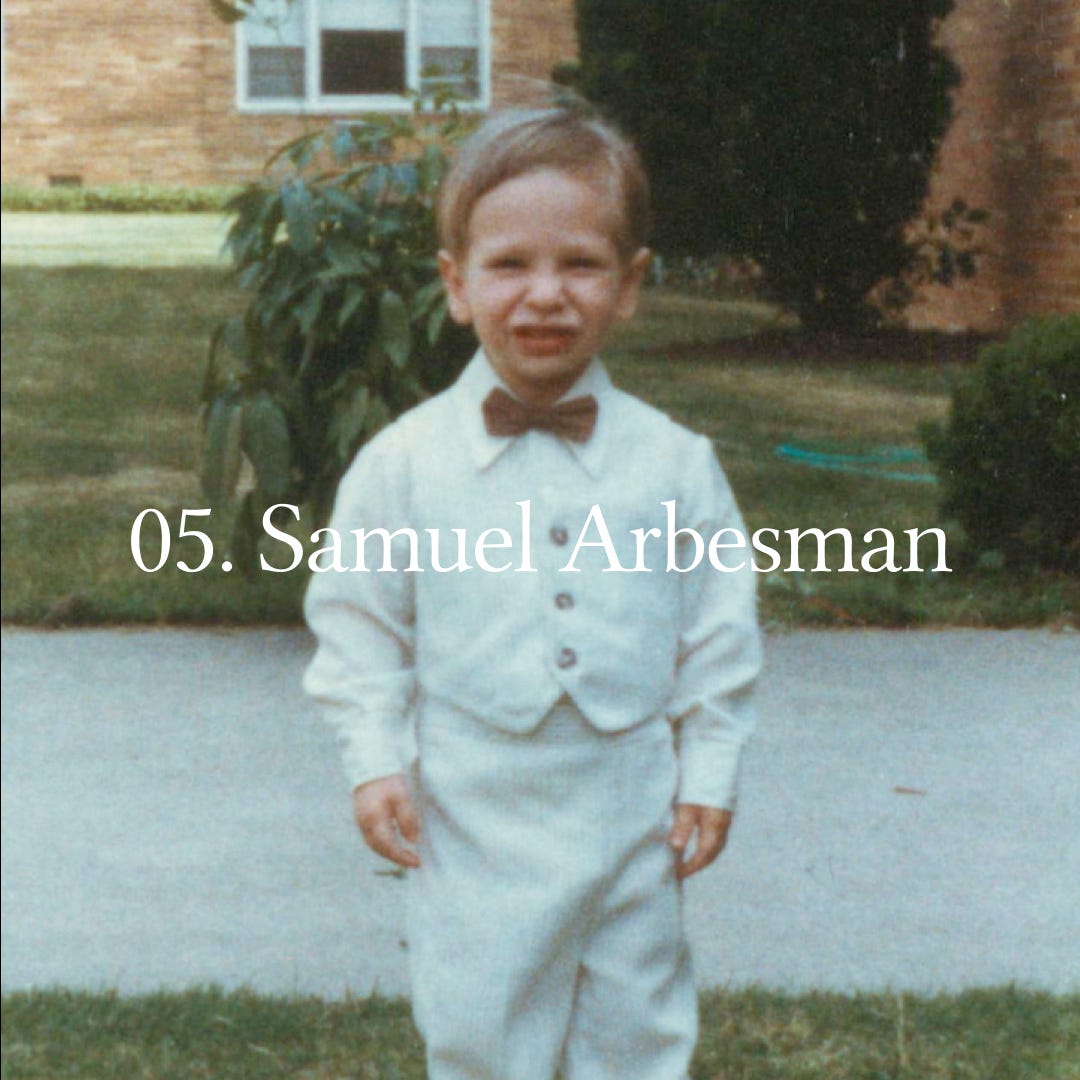
Sane New WorldEP.05 Samuel Arbesman on objectives vs serendipityIn this episode, Sam and I chat about his somewhat unconventional career path that led him to becoming a Scientist In Residence at Lux Capital, how institutions could support more alternative and unconventional roles for thinkers, we talk about objectives vs serendipity when it comes to how we relate with work, and what delightful computing means to us. Enjoy! This is a public episode. If you would like to discuss this with other subscribers or get access to bonus episodes, visit sanenewworld.substack.com
2023-11-0146 min
This Medical LifeEpisode 45: Fact Today, Fiction(?) Tomorrow | Sam Arbesman and the Half-Life of FactsOur understanding of the world today is constantly changing. What was once considered truths and facts can, in hindsight, be seen as misguided or wrong. It may be challenging to accept but becomes evident over time that the things we learn today may become irrelevant or superseded in the future and this is particularly relevant to medicine. Scientometrics is the quantitative study of science and the rate at which change occurs. Today, we discuss this topic with scientist and author Sam Arbesman, to ask the following question: what is the rate of change of facts in the...
2023-09-051h 04
Auscast MedicalEpisode 45: Fact Today, Fiction(?) Tomorrow | Sam Arbesman and the Half-Life of FactsOur understanding of the world today is constantly changing. What was once considered truths and facts can, in hindsight, be seen as misguided or wrong. It may be challenging to accept but becomes evident over time that the things we learn today may become irrelevant or superseded in the future and this is particularly relevant to medicine. Scientometrics is the quantitative study of science and the rate at which change occurs. Today, we discuss this topic with scientist and author Sam Arbesman, to ask the following question: what is the rate of change of facts in the...
2023-09-051h 04
RiskgamingSimulating Evolution: Playing God or the Next Frontier?Artificial life, aka “A-life”, is an intellectually vital field simulating life within computational systems. By allowing simulations to run uninterrupted for extended periods, researchers can observe emergent behaviors, patterns, and even evolutionary trajectories. What's particularly intriguing is that these artificial systems often exhibit behaviors and patterns reminiscent of natural life, reinforcing that certain principles of life and evolution might be universal, whether in a biological context or a digital one.
In this episode of "Securities," host Danny Crichton is joined by Lux scientist-in-residence Sam Arbesman and special guest Olaf Witkowski, who is the director of research at Cros...
2023-08-1844 min
RiskgamingWe need to go deeper with the inception of deep geothermal energyHistorians survey the past and the Twitterati (X-erati?) process the events of the present day. But what does it mean to search the future for clues of what’s to come — and how much longer will we have to wait for it?
In this episode of “Securities”, Danny Crichton welcomes Lawrence Lundy-Bryan, research partner at Lunar Ventures and the publisher of “State of the Future”, a Deep Tech Tracker whose distinguishing feature is its extraordinarily wide remit to investigate the interstices of science and technology and find the morsels of innovative goodness that will power the planet in the years...
2023-08-0435 min
RiskgamingThe p-zombie theory of consciousnessThe rise of generative AI and large-language models (LLMs) have forced computer scientists and philosophers to ask a fundamental question: what is the definition of intelligence and consciousness? Are they the same or different? When we input words into a chatbot, are we seeing the early inklings of a general intelligence or merely the rudiments of a really good statistical parrot?
These are modern questions, but also ones that have been addressed by philosophers and novelists for years, as well as the occasional philosopher-novelist. One of those rare breed is the subject of this week’s “Securities”, specif...
2023-07-1541 min
Meditations with ZoharSamuel Arbesman: Between Knowledge and WonderThis week, Zohar is joined by Sam Arbesman, Scientist in Residence of Lux Capital, and author of the Half-Life of Facts, to talk about the pursuit of knowledge, the sociology and business of science, and the enduring importance of imagination and narrative.
2023-05-241h 12
Meditations with ZoharSamuel Arbesman: Between Knowledge and Wonder S2 E9This week, Zohar is joined by Sam Arbesman, Scientist in Residence of Lux Capital, and author of the Half-Life of Facts, to talk about the pursuit of knowledge, the sociology and business of science, and the enduring importance of imagination and narrative.
2023-05-241h 12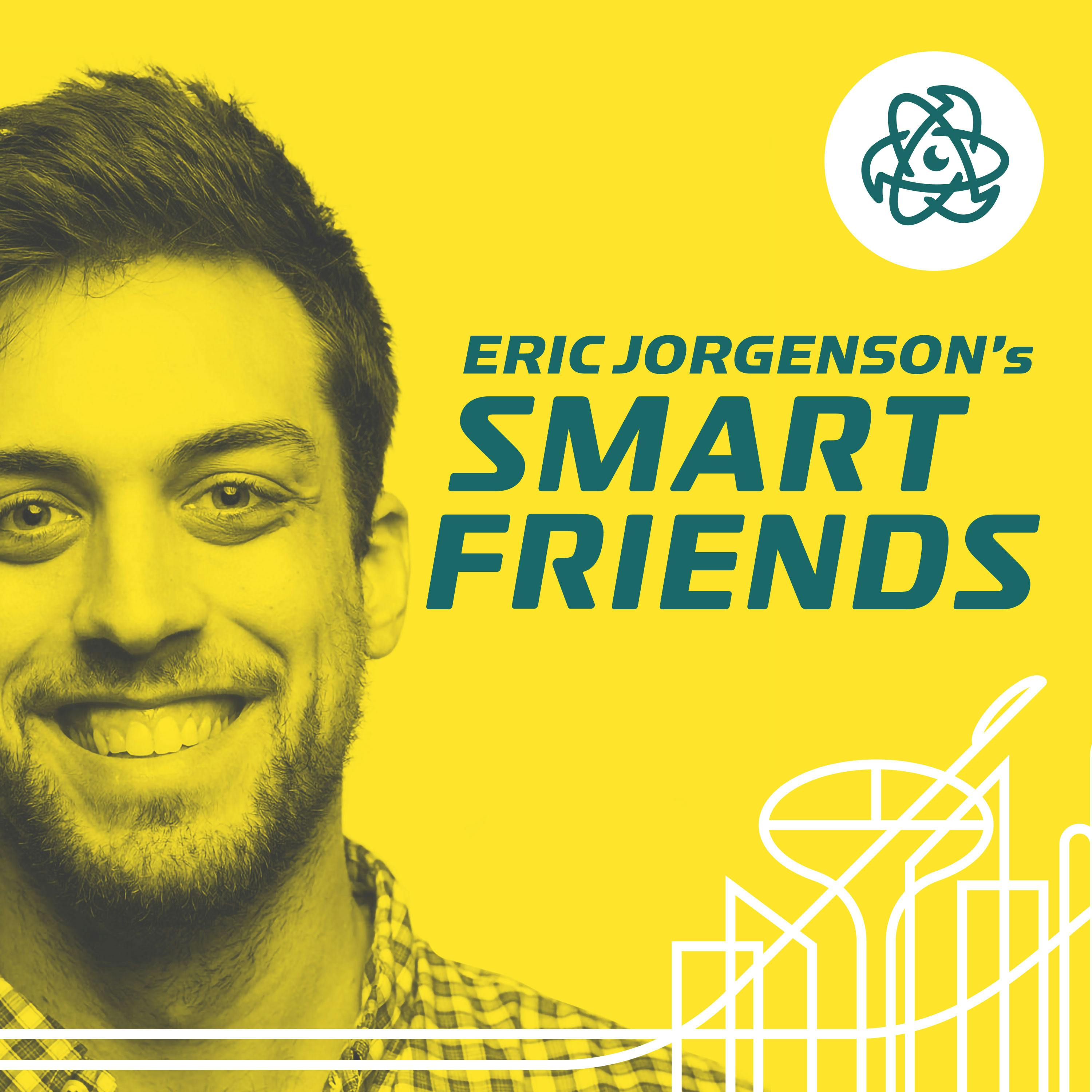
Smart FriendsTurning Discoveries Into Companies with Sam Arbesman of Lux CapitalTopics:(00:04:26) - Who are your influences?(00:08:57) - When Facts Expire: The Half-life of Knowledge(00:22:57) - The Playbook behind Boston Dynamics and DeepMind (00:28:36) - Research Orgs other than Academia, Govt, and Industry(00:31:00) - DARPA and Speculative Technologies(00:39:08) - Ink & Switch(00:41:13) - Challenges of University Tech Transfer Offices(00:47:42) - Transforming the future of Education (00:52:20) - Using AI tools in day-to-day life(00:55:40) - Sam’s job at Lux Capital(00:58:07) - Overperforming and Underperforming Technologies(01:02:33) - What mental models do y...
2023-04-251h 13
Riskgaming“It subverts the structure even of other stories that are told about creation”In a quantified world, the act of creation remains mysterious. Where do ideas come from? How does an artist translate a concept or a feeling into the final work that we get to read or view? The interior drama of that mystery becomes ever more visible as the singular artist expands into a collaboration. How do relationships change the trajectory and originality of creativity?
Few novels have better distilled the essence of these questions than Tomorrow, and Tomorrow, and Tomorrow by Gabrielle Zevin, which chronicles the multi-decade collaboration between two video game designers as they mature from...
2023-04-0427 min
Tools For Thinking by BetaworksMachine Learning for ThinkingConversation between founder of RE:collect, Alice Albrecht and Sam Arbesman, Scientist in-residence at Lux Capital
You can sign up for Re:Collect early access here: https://www.re-collect.ai/
Jerry's Mindmap of this episode: https://bra.in/8jgDK2
2022-10-221h 22
Tools For Thinking by BetaworksCreativity and Tools For ThinkingConversation with Molly Mielke, Founder of Moth Fund and Sam Arbesman, a scientist-in-residence at Lux Capital.
Molly Mielke - https://www.mollymielke.com/
Sam Arbesman - https://www.arbesman.net/
Jerry's Mindmap of this episode can be viewed here: https://bra.in/5pKKLB
2022-10-141h 22
RiskgamingHow will AI art generators affect human creativity?Here is my dilemma, I want custom art for the podcast. Ideally, I would have a new image for each episode. Up until recently, my choices were to use stock photography or work with an artist. I now have a third option, AI art generators.
As of late, my Twitter feed has been filled with these AI-generated images and I have become obsessed with them. On one hand, I feel like a superpower of visual communication has been unlocked and on the other hand, I am an artist and creative who wants other artists and creatives to get paid, I...
2022-07-0913 min
RiskgamingVaporware skepticism"Where marginal stupidity is about “how there is a turning point where further information or complexity can befuddle us and simply raise costs without any concomitant value,” what I am seeing in hard science investing is an outsourcing of thought, a reliance on the splashy marketing one-pager instead of the agonizingly long technical research with the diligence to match.
None of this bodes well for many of the new VC entrants who have suddenly become enamored by the capital return potential of science. We have a view that real advances in science are relatively rare, that they are hard...
2022-06-2520 min
RiskgamingRethinking the science of science funding with Sam ArbesmanThe funding of science is one of the most important leverage points for growth in the global economy. Yet, we’ve barely experimented with how science gets funded or tried to evolve financing models that were invented decades ago. Now, dozens of new organizations have been started to explore novel models for funding scientists to do their best work. Danny Crichton is joined by Lux Capital’s scientist-in-residence Sam Arbesman to talk about why this trend has accelerated and what all these new experimental models might mean for the future of science.
2022-03-3116 min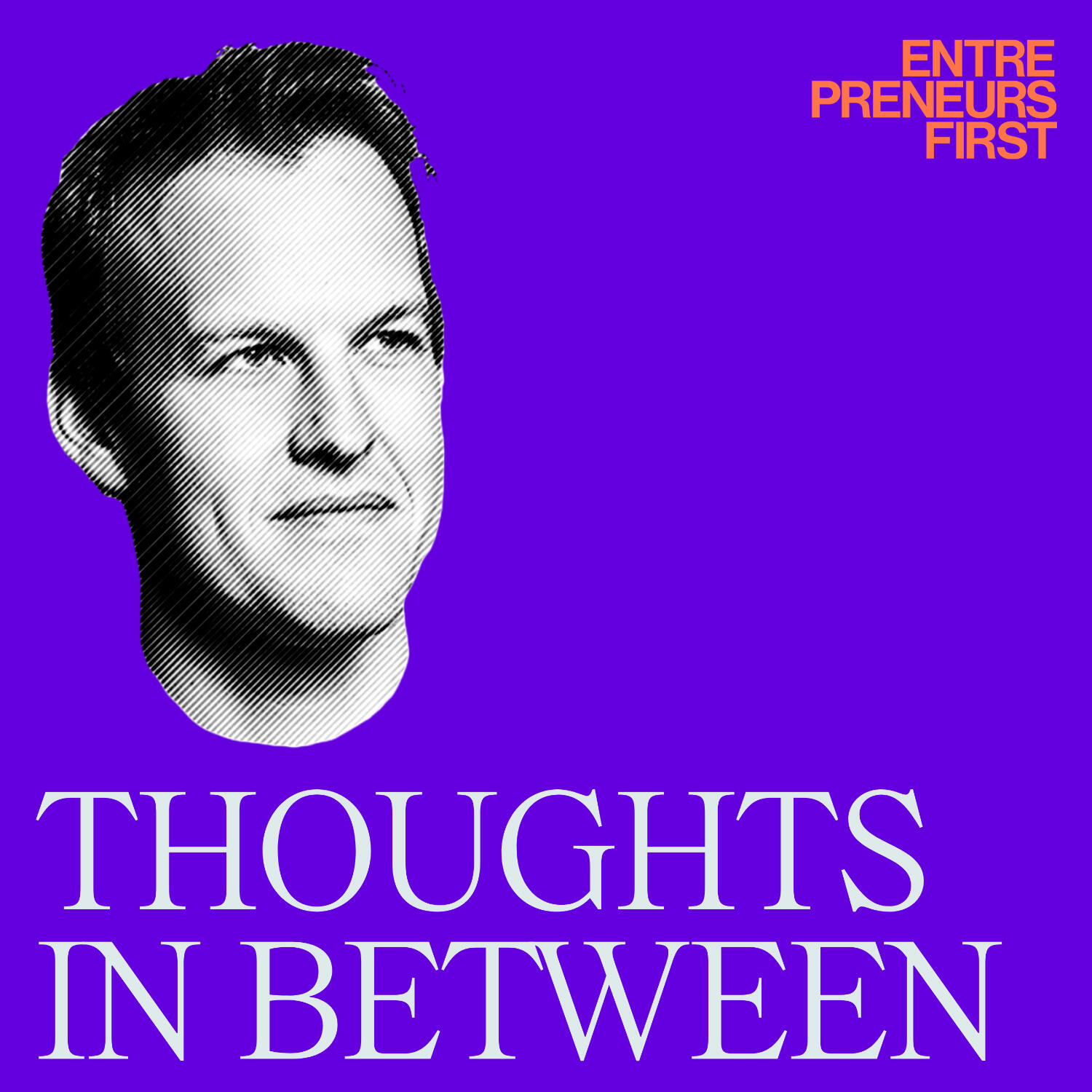
Thoughts in Between: exploring how technology collides with politics, culture and societySam Arbesman: Science, institutional innovation and long term thinkingSam Arbesman is a complexity scientist and writer and is currently a scientist-in-residence at Lux Capital, a leading venture capital fund. Sam’s writing covers many topics that will be familiar to Thoughts in Between readers and listeners. In this conversation, we discuss the need for institutional innovation in science, the value of long-term thinking, the value of historical literacy in technology, and much more. Enjoy this conversation with Sam Arbesman.
-----------------
Thanks to Cofruition for consulting on and producing the show. You can learn more about Entrepreneur First at www.joinef.co...
2022-02-211h 35
Bergh & Wernberg67: Lyssna på forskningenI detta avsnitt pratar vi om den vid första anblick oproblematiska hållningen att vi måste "lyssna på forskningen". I ett flertal frågor har uppmaningen att lyssna på forskningen blivit ett frikort som höjer avsändaren över åsikter eller känslor i debatten. Samtidigt blir den som motsätter sig att lyssna på forskningen, eller de implicita slutsatser som avses, lätt misstänkt för faktaresistens eller trumpism. Frågan är vad det egentligen innebär att lyssna på forskningen? Vilken forskning? Vad säger den? Och vad betyder det för politiskt beslutsfattande? Vi tittar närmare på f...
2021-09-1122 min
Narratives55: Complexity with Sam ArbesmanI got to talk with Sam Arbesman about The Overedge Catalog, Scientific Discovery, and Complexity. You can check out Sam's blog at: https://arbesman.net/ This is a public episode. If you would like to discuss this with other subscribers or get access to bonus episodes, visit willjarvis.substack.com
2021-08-1655 min
Operators To OWNERSOTO Episode 60: The Half-Life of Facts - Why Input Matters!Today's podcast discusses why I preach Input as the first tenant in the Professional Development Plan. This lesson is based upon the book: The Half-life of Facts by Sam Arbesman. Once we understand that what we know has a finite shelf life it becomes easier to aggressively pursue new information and knowledge to make sure "our facts" are just that; actual facts!Sam's Thesis: Facts change in many ways but the undeniable truth is every fact has a half-life that obeys mathematical rules. We can measure/expect these changes, what we learn will be out of date or false ever few...
2021-03-1819 min
Incorporating ScienceSam Arbesman: Scientist in Residence at Lux CapitalSam Arbesman is a complexity scientist. He is passionate about bringing together seemingly unrelated ideas from science and technology. Sam works with companies and founders that recognize the future happens at these boundaries, in such areas as open science, managing massive technological complexity, artificial intelligence, and infusing computation into everything from biology to manufacturing.
Visit our parent blog at https://www.millennium.careers/.
2019-11-0159 min
Creative Next: AI Automation at WorkOur Complex FutureFrom science to technology, and from society to policy, we are heading into a future of change, instability, and complexity. To explore these interesting times Scientist-in-Residence at Lux Capital Sam Arbesman joins Dirk and Jon. Sam Arbesman, Scientist-in-Residence at Lux Capital, who professionally identifies as a Complexity Scientist, joins Dirk and Jon to explore the lattice of complexities facing us in the near and medium-term futures. Taking deep looks at everything from science, to engineering, to policy, to automation, Sam provides insight in a variety of directions, finally suggesting how we might best prepare for the post-scarcity...
2019-09-0336 min
Idea MachinesCompounding Ideas with Sam ArbesmanIn this conversation Sam Arbesman and I talk about unlocking cross-disciplinary innovations, long term organizations, combinatorial creativity and much more. As you might expect from someone with Generalist Thinking as a main area of interest, Sam has out-of-the-box insights in a ton of domains and he's amazing at capturing them in tight concepts like "knowledge mining" and "jargon barriers." By day Sam is the Scientist in Residence at Lux Capital. Don't cite me on it but I think he may be the only person with that job title in the world. In the past he's done research...
2019-05-2453 min
You Are Not So Smart130 - The Half LIfe of Facts (rebroadcast)In medical school they tell you half of what you are about to learn won't be true when you graduate - they just don't know which half. In every field of knowledge, half of what is true today will overturned, replaced, or refined at some point, and it turns out that we actually know when that will be for many things. In this episode, listen as author and scientist Sam Arbesman explains how understanding the half life of facts can lead to better lives, institutions, and, of course, better science.- Show notes at: www.youarenotsosmart.com
2018-06-1830 min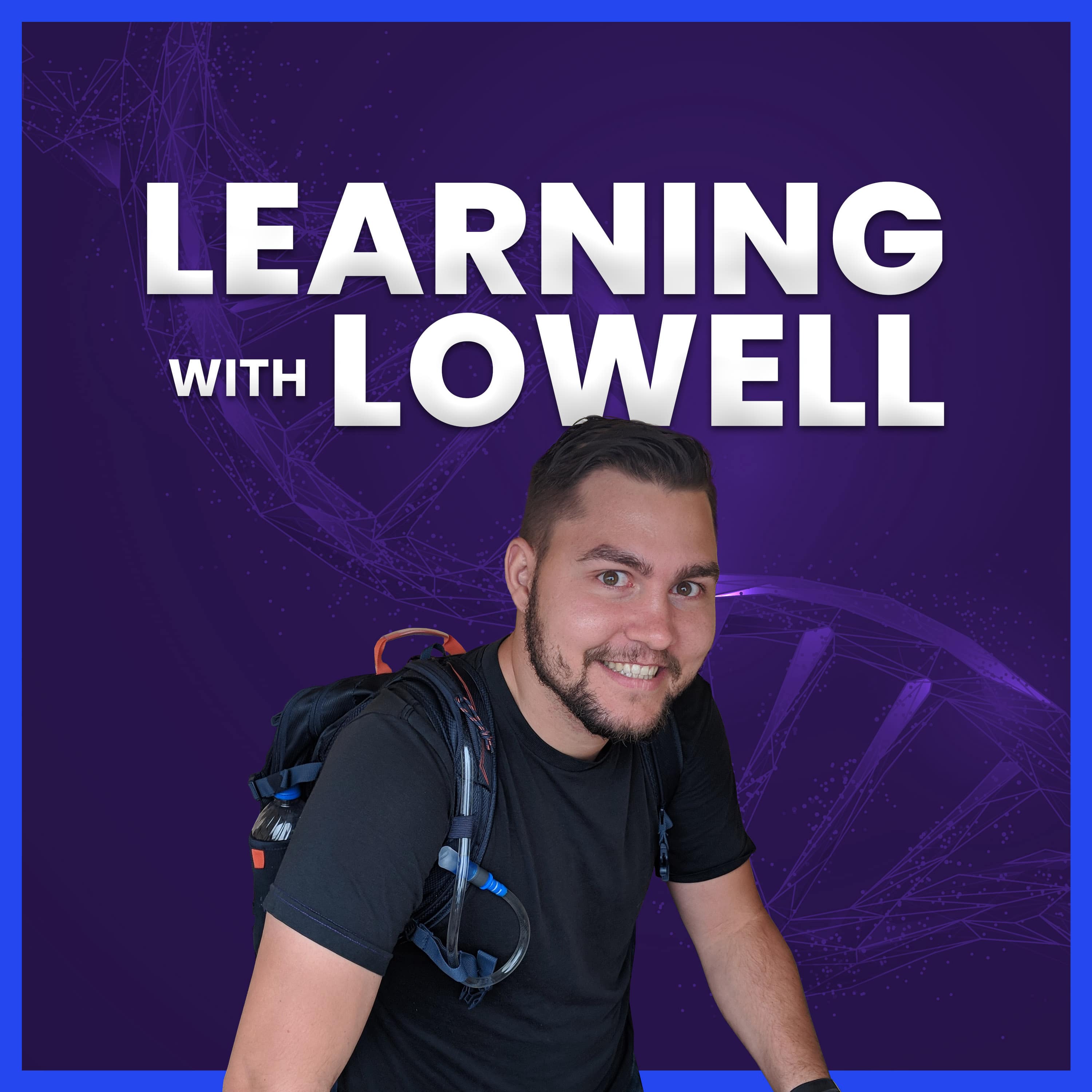
Learning With Lowell37: Lux Capital Scientist in Residence, Award Wining Science Author Dr. Sam Arbesman Discusses Startups, Being a Generalist vs a Specialist, His journey, and Finding Where He BelongsLux Capital Scientist in Residence, what that is like, how he evaluates startups, the big things he focuses on, and his thoughts on being a generalist over being a specialist are just some of the topics we cover in this episode!
Important links
Personal Website
Lux Capital about page
Linkedin Page
All of his writing at Wired
All of his writing at The Atlantic
All of his writing on Medium
Crunchbase
Biography
All of the below can be seen on his website here as well as how to contact him and join his newsletter.
"Samuel Arbesman is a complexity scientist, who...
2018-06-1234 min
You Are Not So Smart099 - The Half Life of FactsIn medical school they tell you half of what you are about to learn won't be true when you graduate - they just don't know which half. In every field of knowledge, half of what is true today will overturned, replaced, or refined at some point, and it turns out that we actually know when that will be for many things. In this episode, listen as author and scientist Sam Arbesman explains how understanding the half life of facts can lead to better lives, institutions, and, of course, better science.- Show notes at: www.youarenotsosmart.com
2017-04-1030 min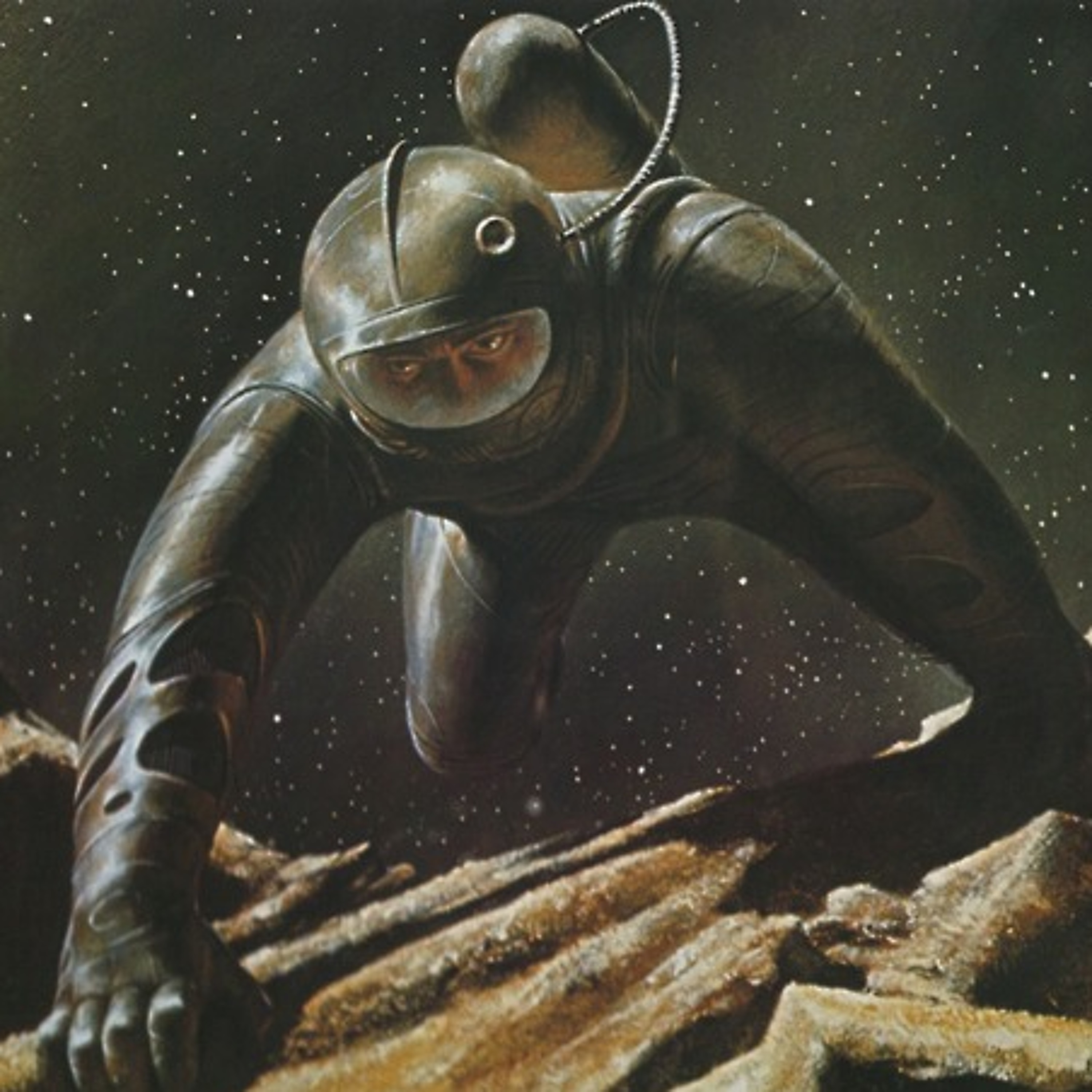
Historias Cienciacionales: el podcastTemporada 1 Episodio 01 - ¿Dónde están los científicos?, con Fabrizzio Guerrero McManusPrimer episodio de Historias Cienciacionales. En nuestra primera emisión hablamos sobre qué es la ciencia y quiénes son las personas que la hacen. Además, también entrevistamos a Fabrizzio Guerrero McManus, especialista en filosofía de la ciencia por la UNAM.
Aquí les dejamos algunas ligas de interés sobre los temas que tratamos:
La encuesta del INEGI sobre percepción pública de la ciencia y la tecnología en México: http://www.inegi.org.mx/prod_serv/contenidos/espanol/bvinegi/productos/encuestas/especiales/ENPECYT/ENPECYT_2011/ENPECTyT2011.pdf
El estudio de Poynard y sus colegas sobre la obs...
2014-01-0827 min